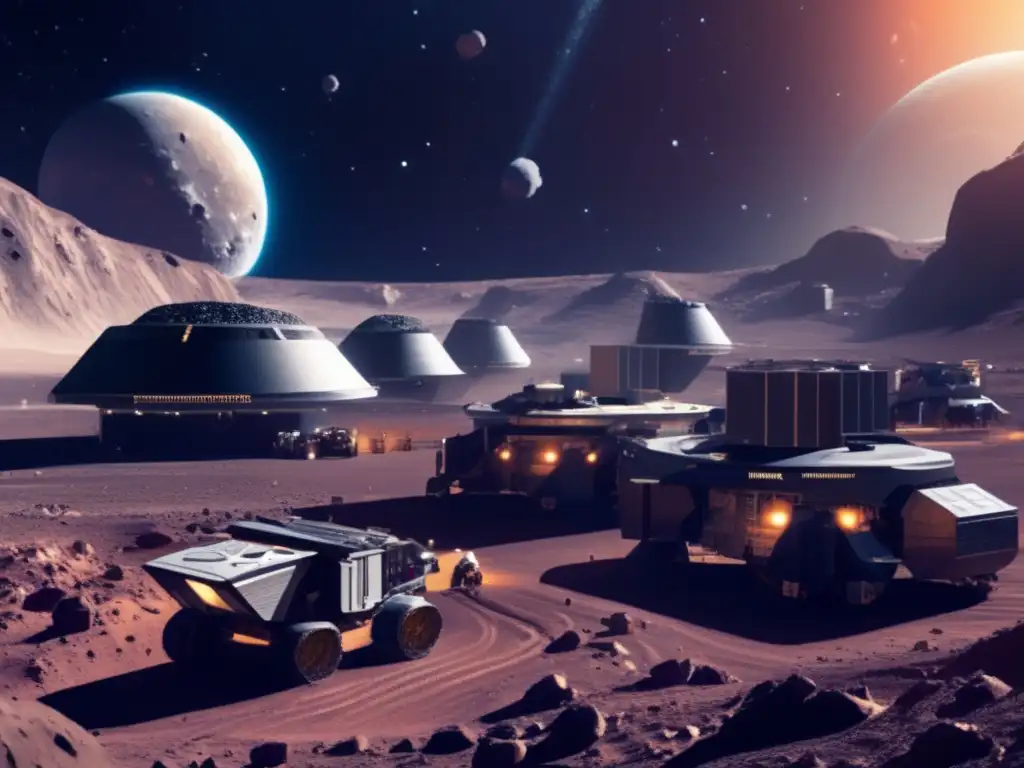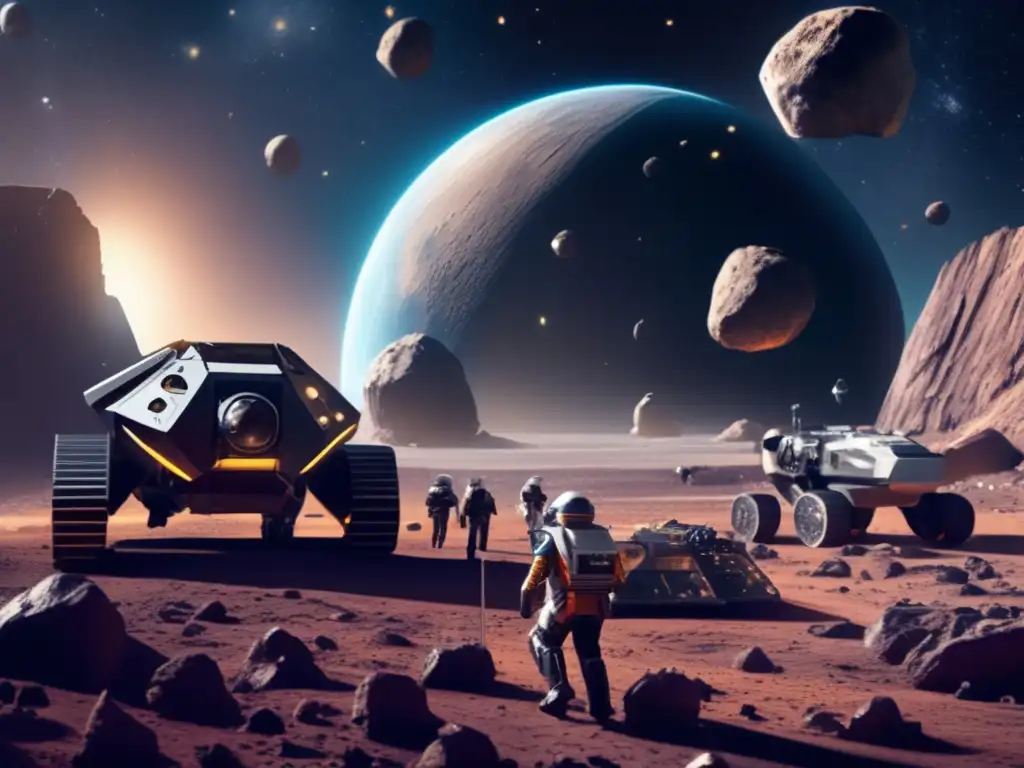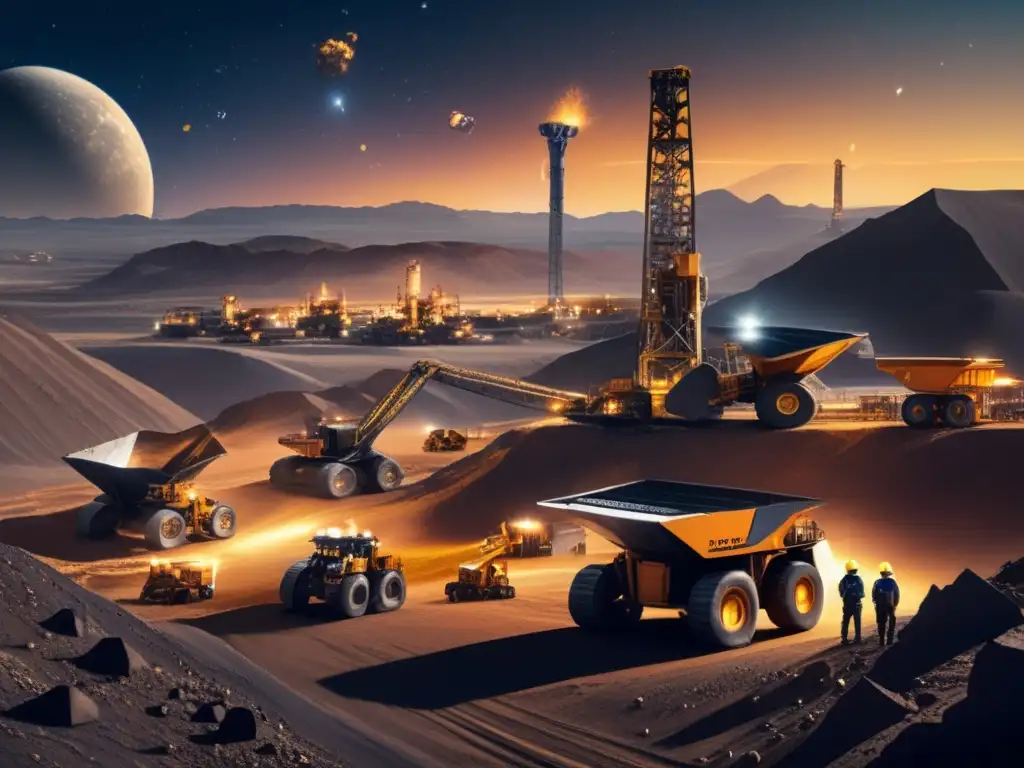Exploring Space Law: The Case Of Asteroid Mining

Introduction
Asteroid mining has emerged as a promising venture in recent years, with the potential to revolutionize resource acquisition in space. As humanity looks beyond Earth for valuable resources, it is essential to understand the legal and regulatory aspects surrounding asteroid mining. This article delves into the intricacies of space law as it pertains to asteroid mining, highlighting key regulations and debates shaping this industry.
The Outer Space Treaty: A Foundation for Space Law

History and Background
The Outer Space Treaty, established in 1967, serves as the cornerstone of international space law. It sets forth principles and guidelines for the peaceful exploration and use of outer space, including celestial bodies like asteroids. This treaty forms the basis for addressing legal issues related to asteroid mining.
National Sovereignty and Property Rights
One significant debate within space law revolves around the concept of national sovereignty and property rights in outer space. While the Outer Space Treaty prohibits countries from claiming celestial bodies as their own, it remains unclear whether this prohibition extends to private entities engaged in asteroid mining.
Licensing and Regulation
A key aspect of space law governing asteroid mining is the licensing and regulation of such activities. International and national laws are evolving to establish frameworks for granting licenses, ensuring compliance with safety protocols, and addressing environmental concerns associated with asteroid mining.
<h2.Commercial Exploitation of Asteroid Resources
<h3.Space Resource Utilization
The concept of space resource utilization entails extracting and utilizing resources found on celestial bodies. For asteroid mining, this involves extracting valuable minerals, water, and other resources that can be used for various purposes, including space exploration and colonization. The legality of commercial exploitation of asteroid resources is a subject of ongoing debate.
<h3.Prospects for Profitability
Commercial asteroid mining ventures face significant challenges, including high costs, technological hurdles, and uncertainties in resource estimation. However, recent advancements in space technology and the growing demand for rare elements have sparked interest among private companies, making profitability a potential reality in the future.
<h3.Preservation of Celestial Bodies
<p.A key concern associated with asteroid mining is the preservation of celestial bodies. Some argue that strict regulations are necessary to prevent irreversible damage to asteroids, which are important scientific and historical artifacts. Balancing resource extraction with preservation remains a complex issue within space law debate.
<h2.Legal and Ethical Considerations
<h3.Space Property Rights
<p.Currently, no consensus exists regarding the establishment of property rights for asteroid mining. Some propose the creation of a system that allows individuals or corporations to claim ownership of extracted resources, while others advocate for a more collective approach to resource distribution and utilization.
<h3.International Cooperation
<p.International collaboration is crucial in shaping space law related to asteroid mining. Efforts are underway to establish frameworks enabling nations to work together in exploring and exploiting celestial bodies, fostering cooperation, and avoiding conflicts of interest.
<h3.Ethical Mining Practices
<p.As asteroid mining gains momentum, discussions around ethical mining practices have also emerged. Issues such as fair labor conditions, environmental impact mitigation, and social responsibility need to be addressed to ensure sustainable and ethical practices are followed in space resource extraction.
Frequently Asked Questions

-
Q: Can private companies claim ownership of an asteroid they mine?
A: The Outer Space Treaty prohibits countries from claiming celestial bodies, but the legality of private entities claiming ownership is still a subject of debate.
-
Q: Is asteroid mining a profitable venture?
A: While asteroid mining poses challenges, technological advancements and the demand for rare resources make it potentially profitable in the future.
-
Q: How can the preservation of celestial bodies be ensured during asteroid mining?
A: Strict regulations and responsible mining practices can help strike a balance between resource extraction and preservation.
-
Q: Are there international laws governing asteroid mining?
A: International space law is evolving to address the licensing, regulation, and cooperation aspects of asteroid mining.
-
Q: What ethical considerations are associated with asteroid mining?
A: Ethical mining practices, fair labor conditions, environmental impact mitigation, and social responsibility are important considerations in space resource extraction.
Conclusion
As the prospect of asteroid mining becomes more feasible, the legal and ethical dimensions of this industry must be carefully considered. Space law is continuously adapting to accommodate the challenges and opportunities presented by asteroid mining. By navigating these complexities responsibly, humanity can unlock the vast potential of space resources while preserving the integrity of celestial bodies for generations to come.
We encourage you to share your thoughts and engage with www.asteroidrealm.com. Consider subscribing and sharing this article on social networks. Thank you for your time and attention.
Additional Resources

For further reading on asteroid mining and space law, explore the following resources:
- "Asteroid Mining: Challenges and Opportunities" by John S. Lewis
- "The Future of Space Resources Utilization: Opportunities and Challenges" by Angeliki Kapoglou and Laurent Assier Andrieu
- "The Limits of Sovereignty: Property and the Due Constitution of Asteroid Law" by Gary Pehlman
 Scanning The Stars: Identifying Potential Asteroids For Mining
Scanning The Stars: Identifying Potential Asteroids For Mining Pioneering The Cosmos: The Future Of Asteroid Mining
Pioneering The Cosmos: The Future Of Asteroid Mining Asteroid Mining: Overcoming The Energy Challenge
Asteroid Mining: Overcoming The Energy ChallengeIf you want to discover more articles similar to Exploring Space Law: The Case Of Asteroid Mining, you can visit the Asteroid Mining and Resources category.
Leave a Reply

Articulos relacionados: